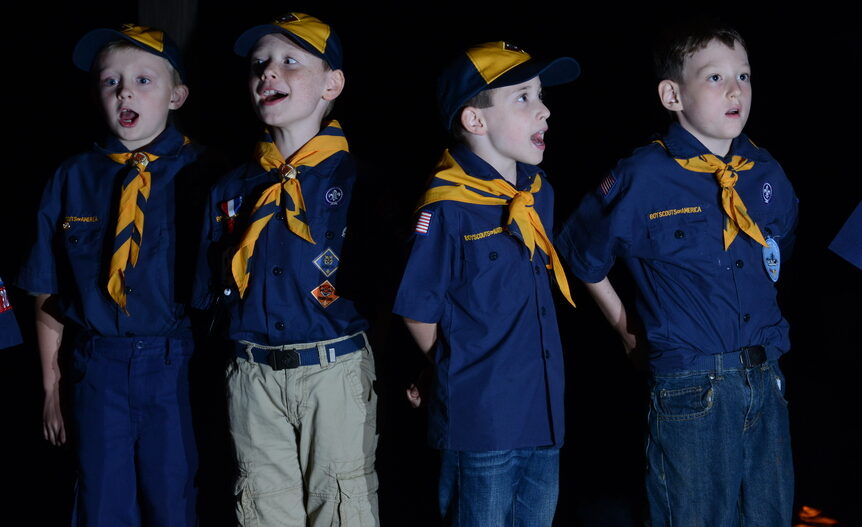One of the most recognizable, iconic action movie stars of our time wasn’t born being comfortable performing in front of a crowd.
It was in Cub Scouts that Bruce Willis first honed his craft.
In comments from an older interview that resurfaced last month, Willis says his time in Cub Scouts was when he caught the acting bug.
Q: When was the first time you performed?
A: Some Cub Scout show. I did little skits you would probably find in the Cub Scout handbook. Little tricks, like a vaudeville gag where you pretend to show the audience that you’re mixing up something, and then at the last minute it’s like you’re going to throw it on the audience, but it’s just the oatmeal — not the oatmeal and the paint and all that. It got a big laugh, and I thought, “This is it.”
Performing in front of others — whether it’s acting in a skit, playing a musical instrument or putting on a puppet show — has been a part of Scouting for decades, and for good reason: It’s another thing that helps kids Be Prepared for life.
Sadly, Willis has been in the news recently due to the announcement by his family that he has been diagnosed with aphasia, the loss of ability to understand or express speech caused by brain damage.
(Coincidentally, Willis was once in a movie called Moonrise Kingdom that featured a fictional Scout troop on a fictional island off the coast of New England. He was also in a movie called The Last Boy Scout that really wasn’t about Scouting at all.)
Actor Bruce Willis credits Cub Scouts with igniting his love for acting. “I thought, ‘this is it,’ ” he says. Photo by Shutterstock
Why we do it
“The Cub Scout years, I had a terrible stutter,” continues Willis. “But then I did some theater somewhere … and when I memorized words, I didn’t stutter, which was just miraculous. That was the beginning of the gradual dispelling of my stutter.”
Just like completing an epic hike can build confidence, so can performing a skit or doing a magic trick that elicits cheers from the crowd.
“Hearing the audience clap at the end of the show is an incredible feeling,” Brian Olkowski, director of a kids’ drama club in California, said in a recent interview. “The kids are like, ‘Hey, this is for me!’ That instant positive feedback is really rewarding.”
Additionally, performing in front of a live audience helps kids learn to think on their feet. Everything isn’t going to go 100% smoothly 100% of the time. Making mistakes as a kid in front of a roomful of cheerful, positive Scouting families will help them Be Prepared for that presentation they have to do in the company boardroom 30 years later.
A Cub Scout performs a magic trick. Photo by Brian Payne
How performances are built into the Cub Scout program
Requirement No. 5 of the Tigers in the Wild required adventure is to sing a song or act out a skit with your Tiger den as part of the campfire program.
“Skits are funny little scenes that you can act out to tell a story to the group,” the Tiger Handbook says. “Singing songs and telling stories in a circle of Tigers are fun ways to entertain your pack.”
Requirement 1 of the Curiosity, Intrigue and Magical Mysteries Tiger elective is to put on a magic show in front of an audience.
Requirement No. 2 of the Beat of the Drum Bear elective adventure is to build a diorama, write a story or present a skit related to the history and culture of American Indians or other indigenous people.
Things get serious in the Webelos and Arrow of Light elective adventures, which include Maestro! (performing a musical instrument) and Moviemaking (creating a movie and sharing it with your family, den or pack).
Know a Cub Scout who’s nervous about performing in front of others?
The Tiger Handbook has some great advice: “A Scout is brave. … Acting can feel scary. Just Do Your Best, and have fun with your friends.”
